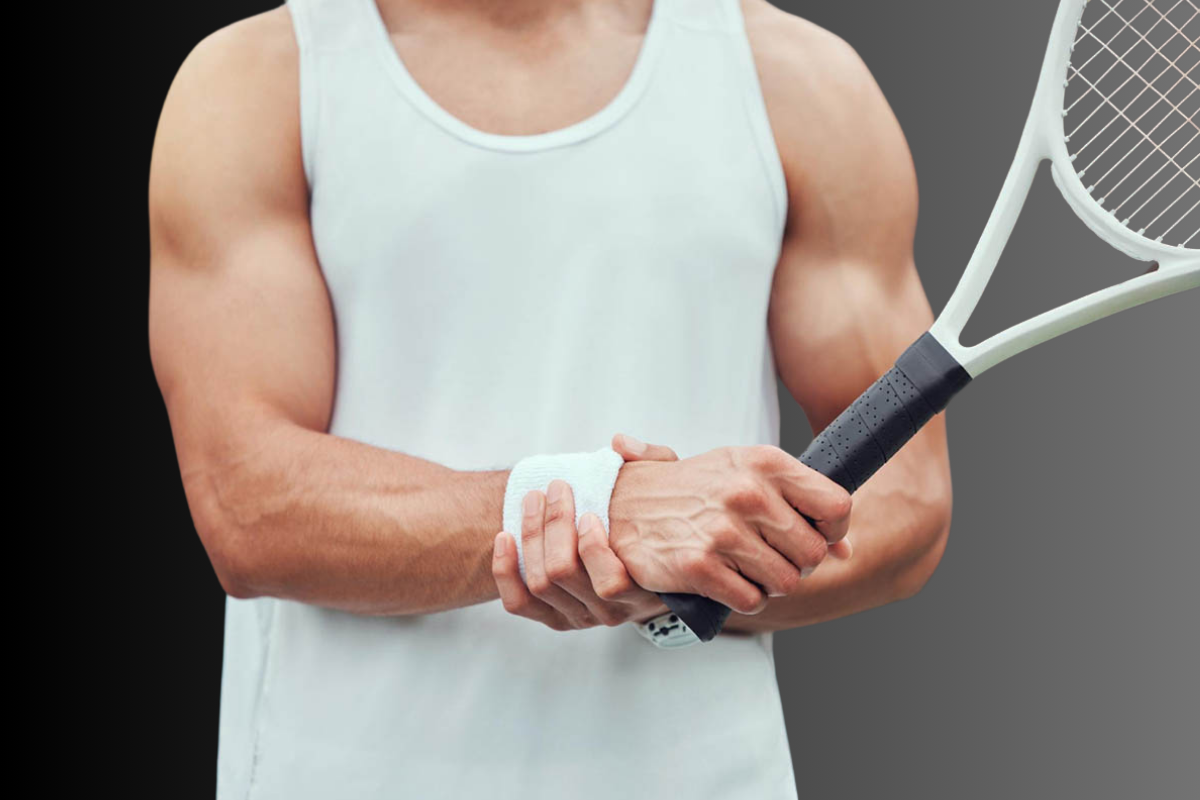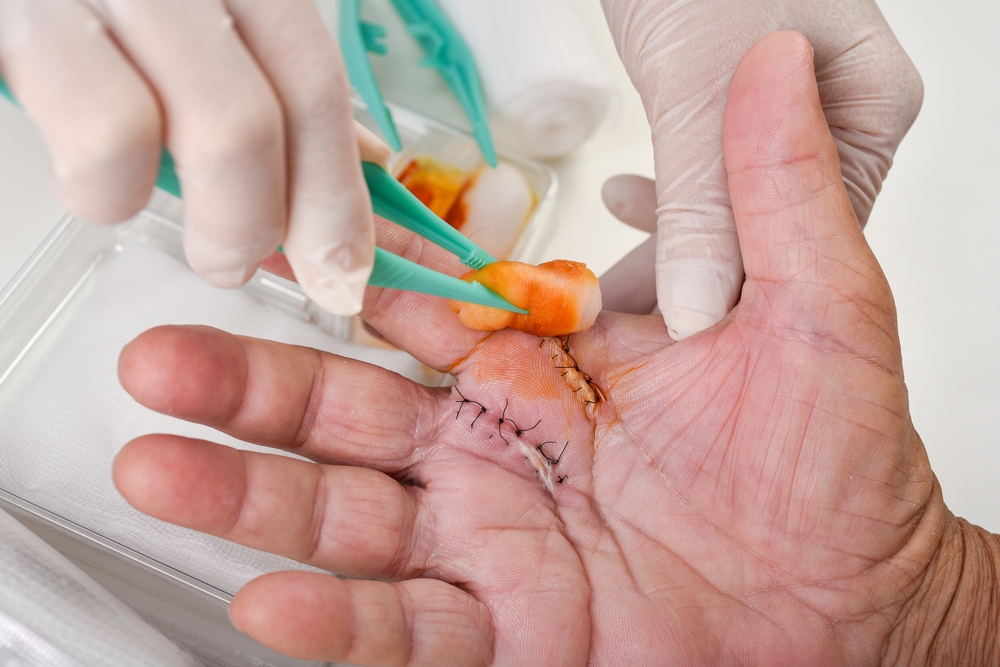- +91 75677 63301
- 24*7 Emergency Care
Hand transplant surgery: How It works and Who it’s for?
- Home
- /
- Hand Surgery
- /
- Hand transplant surgery: How...

Losing a hand due to trauma, illness, or congenital conditions can drastically alter a person’s quality of life. From performing basic daily activities to experiencing the sense of touch, a missing hand impacts both function and independence. While prosthetics have advanced considerably, they may not fully replicate the natural movement or sensation of a real hand.
This is where hand transplant surgery comes in—a revolutionary procedure that offers the possibility of restoring not just form, but also function and sensation.
In this blog, we’ll walk you through how hand transplant surgery works, who qualifies for it, and what recovery looks like.
Table of Contents
ToggleWhat is hand transplant surgery?
Hand transplant surgery is a type of vascularized composite allotransplantation (VCA), where a donor hand (including skin, muscles, tendons, bones, nerves, and blood vessels) is surgically attached to a recipient who has lost one or both hands.
Unlike prosthetics, a transplanted hand has the potential to move, feel, and grow with the body—thanks to living tissues that can reconnect and regenerate over time.
Not everyone who has lost a hand is a candidate for this complex procedure. Ideal candidates are:
- Individuals who have lost one or both hands due to trauma, infection, or certain medical conditions.
- In good overall health, with no uncontrolled chronic illnesses (e.g., diabetes, heart disease).
- Psychologically prepared for lifelong medication, rehabilitation, and emotional commitment.
- Without severe nerve damage in the remaining limb that would hinder recovery.
- Motivated and capable of adhering to strict rehabilitation protocols.
The first step is finding a suitable donor with a close match in:
- Blood type.
- Skin tone.
- Hand size.
- Tissue compatibility. (HLA typing)
The surgery is performed by a team of expert hand surgeons (microsurgeons), orthopedic specialists, and plastic surgeons. It typically takes 12–18 hours and involves:
- Bone Fixation: The bones are carefully aligned and stabilized.
- Blood Flow Restoration: Arteries and veins are reconnected to ensure proper circulation.
- Tendon and Muscle Repair: Tendons and muscles are repaired to restore movement.
- Nerve Repair: Nerves are reconnected to recover sensation.
Skin and Soft Tissue Closure: Skin is closed and soft tissues are properly aligned for protection and healing.
3. Immunosuppression
After surgery, recipients must take immunosuppressive medication for life to prevent the body from rejecting the transplanted hand. Regular monitoring is essential.
The surgery typically takes 15 to 30 minutes and is done as a day-care procedure, meaning you can go home the same day.
Recovery and Rehabilitation
Recovery doesn’t end with surgery—it’s only the beginning.
Key components of recovery include:
- Intensive physiotherapy to retrain muscles and improve function.
- Occupational therapy for day-to-day tasks.
- Psychological support to adjust to the new limb.
- Regular follow-ups to manage immunosuppression and detect any signs of rejection.
Full functional recovery may take 1–2 years, but many patients regain meaningful use, including the ability to grip, write, and feel temperature or pressure.
Risks and Considerations
As with any complex surgery, there are risks:
- Graft rejection. (acute or chronic)
- Infections due to immune suppression.
- Side effects of long-term medication. (e.g., kidney damage, increased infection risk)
- Emotional and psychological stress.
That’s why thorough screening, counseling, and follow-up care are crucial.
Why choose Krisha Hand Hospital?
At Krisha Hand Hospital, we specialize in advanced hand surgery, including complex reconstructions and transplants. Our multidisciplinary team of microsurgeons, orthopedic experts, and rehab specialists work together to deliver exceptional care throughout your journey.
We offer:
- State-of-the-art microsurgical facilities.
- Advanced diagnostic and donor-matching technologies.
- Personalized rehab and physiotherapy plans.
- Long-term post-op monitoring and support.
Conclusion
Hand transplant surgery represents a breakthrough in restoring real function and sensation for people living with hand loss. While not suitable for everyone, it offers a new lease on life for those who are eligible and committed.
If you or a loved one is considering hand transplant surgery, take the first step toward a restored life.
At Krisha Hand Hospital, we’re dedicated to giving you more than a hand—we’re here to give you hope, strength, and the ability to live fully again.
Schedule your consultation today and explore whether hand transplant is right for you.
Author bio
Dr. Karn Maheshwari is the founder of Krisha Hand Hospital, Ahmedabad, established in 2016. He is the only fnb-qualified hand surgeon across Gujarat, Rajasthan, and Madhya Pradesh.
With MS and DNB in orthopedics, Dr. Maheshwari specializes in treating a wide range of hand and wrist conditions, including carpal tunnel syndrome, sports hand injuries, orthopedic hand surgery, ganglion cysts, mangled hand injuries, congenital hand differences, brachial plexus palsy, cerebral palsy & spastic hand, hand tendinopathy, hand microsurgery, hand swelling, hand transplants, hand reimplantation, rheumatoid hand deformities, and peripheral nerve injuries & compressive neuropathies.
Dr. Maheshwari’s unmatched expertise and patient-centric approach ensure world-class treatment, advanced surgical solutions, and optimal recovery for patients with complex hand and wrist conditions.
FAQs
While rare, hand transplant surgery has been performed on children. However, eligibility depends on physical and psychological maturity, long-term compliance with medications, and family support for rehabilitation.
Yes, bilateral (both-hand) transplants are possible and have been successfully performed. However, the surgery and recovery process are more complex and require even more intensive rehabilitation.
Finding a suitable donor can take months to years, depending on tissue compatibility, hand size, skin tone, and blood type availability in the transplant registry.
Efforts are made to match skin tone closely, but perfect matches are rare. Minor mismatches may exist but are typically cosmetic and do not affect function.
Sensory recovery is gradual and varies. Some patients regain significant feeling, while others may experience partial sensation or altered sensory feedback.
Yes, chronic rejection can occur months or even years post-surgery. Lifelong immunosuppressive medication and regular monitoring are essential to reduce this risk.
In case of rejection, doctors may attempt to reverse it with medication adjustments. If unsuccessful, the hand may need to be surgically removed.
Recent Post
-
A Rare Pediatric Microsurgery Success at Krisha Hand Hospital, Now Published Internationally (2026)
-
Spectrum of Hand and Wrist Microsurgery: A CME Advancing Surgical Excellence
-
Dr. Karn Maheshwari shares expertise at IOACON 2025: Advancing hand & Wrist arthroscopy
-
Academic CME Program Led by Dr. Karn Maheshwari
-
Stiff fingers after surgery: What to expect during rehabilitation?








